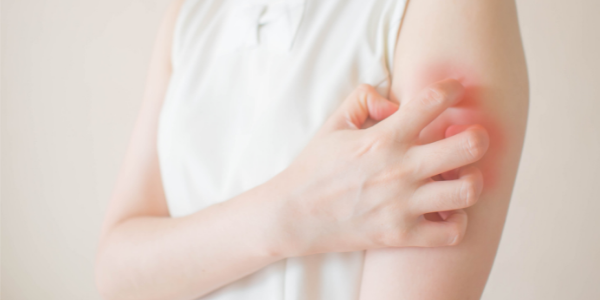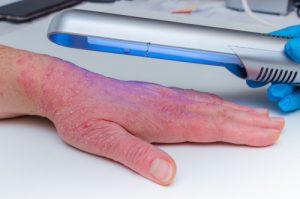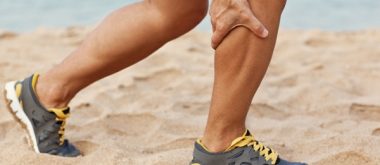To many people, summer is the time to hold family reunions, picnics, barbecues and vacations at the beachside. However, if you live with eczema, or have begun experiencing menopause-induced eczema, this season is not as fun. With the rising temperatures, you might be tempted to go for a sun bask or swimming. Unfortunately, warm-weather activities are known to be eczema triggers. Normally, eczema worsens during the cold winter months when the air becomes dry and cold. However, you can develop eczema flare-ups any time of the year. In this piece, we evaluate the various ways of avoiding eczema flare-ups during summer.
Tips for Limiting Menopausal Eczema Flare-Ups During Summer
Hydrate, Stay Cool and Avoid Sweating
As obvious as it might seem, it is essential to drink enough water during the summer. Essentially, this will keep you hydrated while at the same time cooling your body. With a skin condition such as eczema, it is important to avoid sweating. This could be pretty difficult with the summer heat.
However, you can minimize the rate of your sweating by staying in cool places. Typically, you will want to avoid excessively warm temperatures. You can achieve this by staying in shaded areas or indoors where the environment is air-conditioned. Additionally, go for loose-fitting apparel that has breathable fabric.
Get Yourself a Mineral Sunscreen
Apart from the normal flare-ups caused by the temperatures, eczema can also be worsened by some sunscreens, especially the chemical ones. Therefore, it is advisable to choose a sunscreen that works for you. If your skin flares up when you apply chemical sunscreen, you can try the physical sunscreen. A physical sunscreen gives you all the benefits of sunscreen while at the same time moisturizing your skin. Physical sunscreens—also known as mineral sunscreens—contain ingredients such as titanium oxide and zinc oxide and are normally labeled “physical” or “mineral” on their container.
 Prevent the Flares by Trying Phototherapy
Prevent the Flares by Trying Phototherapy
Phototherapy is an eczema-treatment procedure that uses ultraviolet light. This ultraviolet light is very similar to the one found in sunlight. However, the damaging rays are removed through filtering to ensure that it does not harm your skin. When you get exposed to controlled ultraviolet light during the day, your skin tends to adapt; as a result, you get less severe flare-ups when you are in the sun. Phototherapy uses ultraviolet light called “ultraviolet B,” whose wavelengths are anti-inflammatory. One study conducted and published by the British Journal of Dermatology indicates that phototherapy can reduce signs of eczema by up to 61 percent.
Take Off Wet Clothing As Soon As Possible
Apart from avoiding the sunlight, you should ensure that you stay dry during summer if your skin is prone to eczema. Normally, when your sweating starts to build up and your T-shirt starts to stick to your skin, you can get a flare-up. Therefore, it is advisable to keep some dry clothes close to minimize wetness that can lead to an eczema flare-up.
Get an Air Purifier for Your Environment
This is another great way of avoiding eczema flare-ups. In most cases, staying out of the sunlight and keeping cool tend to do the trick. However, if you live in an environment that contains aspects that trigger eczema, purchase an air purifier. An air purifier is essential in removing pollen, dust and other elements that can trigger your problem. If you suffer from this skin problem and inhale any impurities, the particles can lead to an allergic reaction that leads to a flare-up.
Rinse Your Body After Swimming
It is advisable to rinse your skin after swimming in a pool or the ocean. The chlorine found in swimming pools and ocean water salt can cause an allergic reaction to sensitive skin. If you just took a swim and you are a long way from a good shower, you can carry a bottle of water with you and spray it all over your body. This will help eliminate any particles that might lead to an allergic reaction to your skin.
Stay Clean by Bathing Daily
This is essential in ensuring that the bacteria and sweat that might accumulate on your skin are removed. This will keep your skin clear of any allergens while at the same time moisturizing you.
Use Ceramides to Moisturize Your Body
With dry skin, the level of ceramides—lipids that physically protect your skin—goes down. Therefore, you should consider getting a ceramide moisturizer to help restore the skin’s protection.
Conclusion
In a nutshell, avoiding eczema flare-ups requires staying away from allergic materials and keeping your skin protected. You can achieve this by using protective products such as moisturizers, going to phototherapy or modifying your environment.
Click here to learn about Menopausal Eczema: Everything You Need to Know

 Prevent the Flares by Trying Phototherapy
Prevent the Flares by Trying Phototherapy



